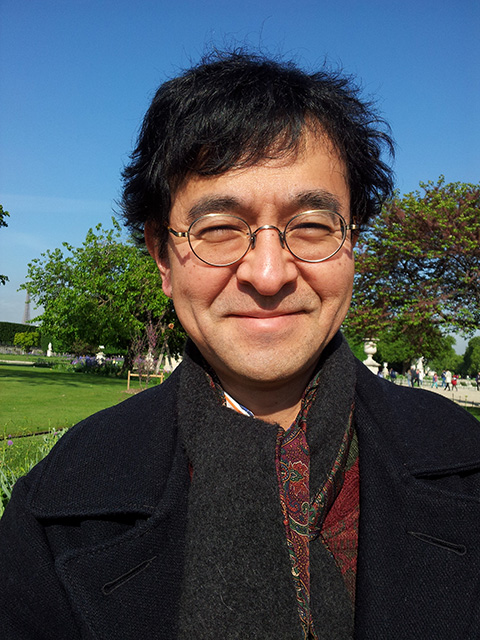German Government Pouring Efforts into Developing Quantum Computer Technology and Putting it to Practical Use
 © DWIH Tokyo/iStock.com/gremlin
© DWIH Tokyo/iStock.com/gremlin
July 15, 2021
[by Toru Kumagai]
On June 15, 2021, a news item appeared that drew the attention of the scientific and business communities of Germany and indeed the rest of Europe. That day, Europe’s first commercially available quantum computer was installed at the Fraunhofer Institute laboratory in Ehingen on the outskirts of Stuttgart. This quantum computer – an IBM – built device called Q System One – will be made available to both scientists and the industry and can be used for research and experiments.
A quantum leap in computing power
German Chancellor Angela Merkel took part in that day’s ceremony via a remote conferencing system that marked the event at the Fraunhofer Institute laboratory, and inspected the Q System One with its gold wires and components. “Germany is one of the world’s leading countries in basic research on quantum computing, but we also want to strengthen the economic applications of quantum computing in the future,” said the chancellor. “In this sense, today is an important day.”
The computing power of quantum computers far exceeds that of conventional computers. Conventional computers use computational units called bits that express either a “0” or “1” state. However, quantum computers create multiple “superpositions” between “0” and “1,” and then perform their computations using what are called quantum bits (qubits), which enables them to complete computations in a few hours that previously would have taken several years. The quantum computer housed at Ehingen has a computing power of 27 qubits, but IBM plans to develop a quantum computer over the next two years with a computing power of 1,000 qubits.
Quantum computers are expected to dramatically improve efficiency and productivity in a variety of fields including medicine, chemistry, financial services, new materials development, cybersecurity, logistics, and agriculture. They are one of the most important technologies of the 21st century.
German Government Has Committed a Significant Amount of Money
For this reason, Germany’s Federal Ministry of Education and Research in 2018 began to implement an action plan meant to bring quantum technologies and basic research into the marketplace. Additionally, in 2020 it announced a strategic initiative on quantum computing focused on hardware and software development.
Furthermore, on January 6, 2021, Education and Research Minister Anja Karliczek announced “Quantum Computing Roadmap”. The announcement indicated that the federal government plans to invest some €2 billion (approximately ¥260 billion) to develop and apply quantum technologies. One of the government’s objectives is to see the creation of a German – made quantum computer by 2026.
Currently, the United States and China are the leaders in the development of quantum computers. IBM produced the Q System One – the world’s first quantum computer for commercial use – in January 2019. In October, Google announced that its scientists had used a quantum computer to solve a problem that would have required a conventional supercomputer 10,000 years to complete in 3 minutes and 20 seconds. Both the US and Chinese governments are investing vast sums of money to develop and apply quantum computing technology.
Strong Interest from the Business Community
Unlike the US, Germany lacks the presence of enormous information technology companies with plentiful financial resources like Google and IBM. For this reason, central government support is indispensable for developing and applying a new technology like the quantum computer.
In her January 6 announcement Minister Karliczek explained some of the background to this series of initiatives: “The development and application of quantum technologies in Germany and Europe increases our prosperity, strengthens our technological sovereignty and helps technology made in Germany to take a real leap. Our goal is to become a first league player in this technology.” As a first step toward achieving this goal, German companies can use the quantum computer housed in Ehingen to conduct experiments, at a user fee of €11,621 (¥1.51 million) per month. Thus it will serve as a “driving school” of sorts for people to become familiar with the new technology.
There is considerable interest in quantum computing within the German business community. On June 9, ten major companies including chemical manufacturer BASF, automobile manufacturers Volkswagen and BMW, electric devices and electronics manufacturer Siemens, software developer SAP, and pharmaceutical company Boehringer Ingelheim joined together to form the Quantum Technology and Application Consortium (Qutac). These companies hope to become pioneers for finding applications for quantum computing in Germany.
The Japanese government has also stressed that it sees quantum computing as a core technology for transferring Japan to a knowledge – based society in the 21st century. In January 2020, the Integrated Innovation Strategy Promotion Committee issued a report on quantum technology innovation strategy. This document indicated the government’s intent to put this technology to use in the manufacturing industry and a variety of other fields. The Japanese government’s plan is to invest ¥21.5 billion in fiscal 2020 towards the development of this technology.
Expectations are particularly high for quantum computing in the medical field. For example, quantum computers could analyze the genomes of the ill in a very short period of time, which could result in the creation of tailor – made treatments with the optimal methods for the patient. There is also potential when it comes to drug design simulations that could be carried out efficiently by quantum computer.
The fact that both Japan and Germany are setting about in earnest to develop and apply quantum computing is likely to stir up the competition over this cutting – edge technology, and may bring ever closer the day when it can be actually put to use in business and society.
Click here to read other articles from the series “Toru Kumagai’s report on R&D trends in Germany”.

About Toru Kumagai
Born in Tokyo in 1959, Kumagai graduated from the Department of Political Science and Economics at Waseda University in 1982 and joined Japan Broadcasting Corporation (NHK), where he gained a wealth of experience in domestic reporting and overseas assignments. After NHK, he has lived and worked as a journalist in Munich, Germany, since 1990. He has published more than 20 books on Germany and Germany-Japan relations, as well as been to numerous media outlets to report on the situation in Germany.
